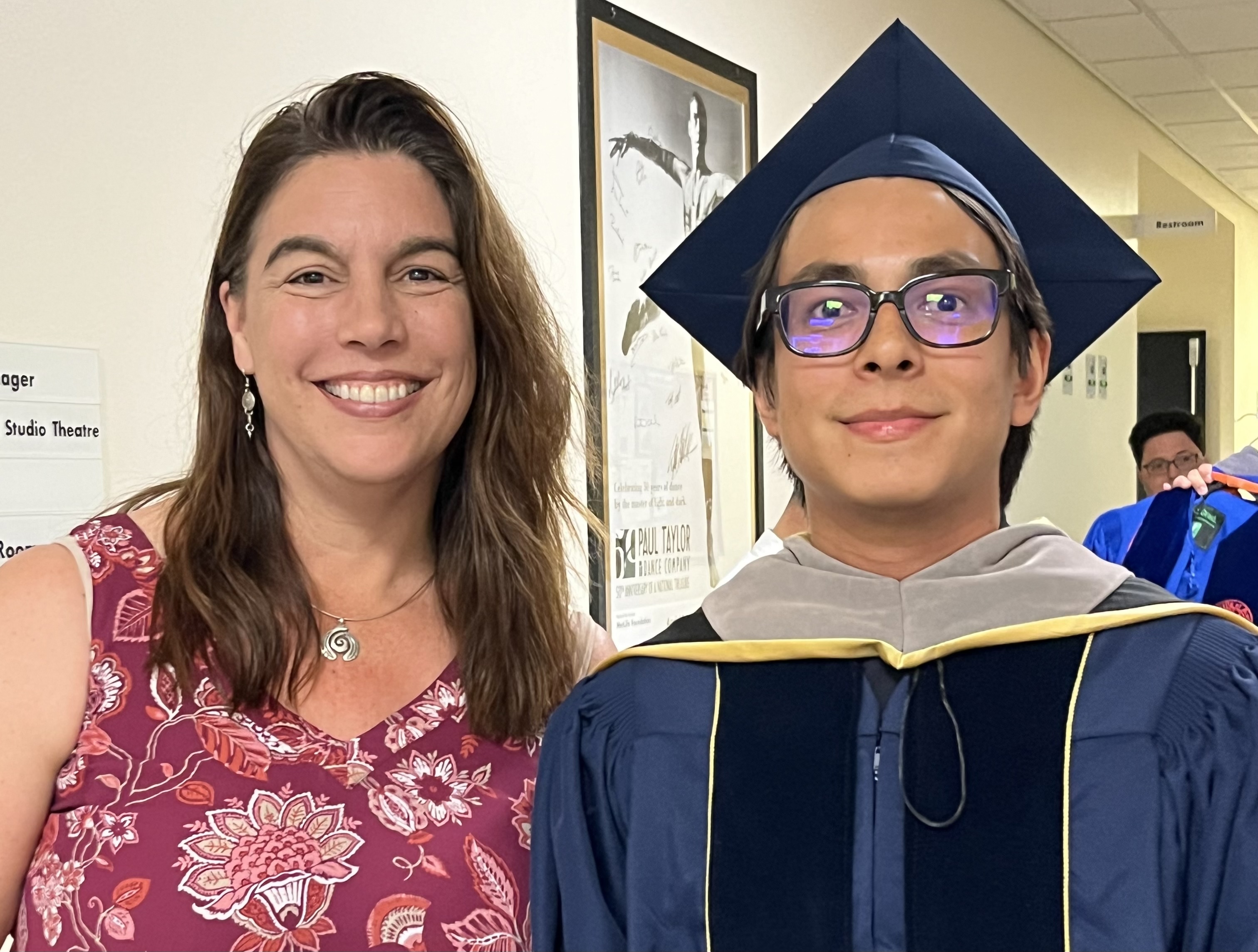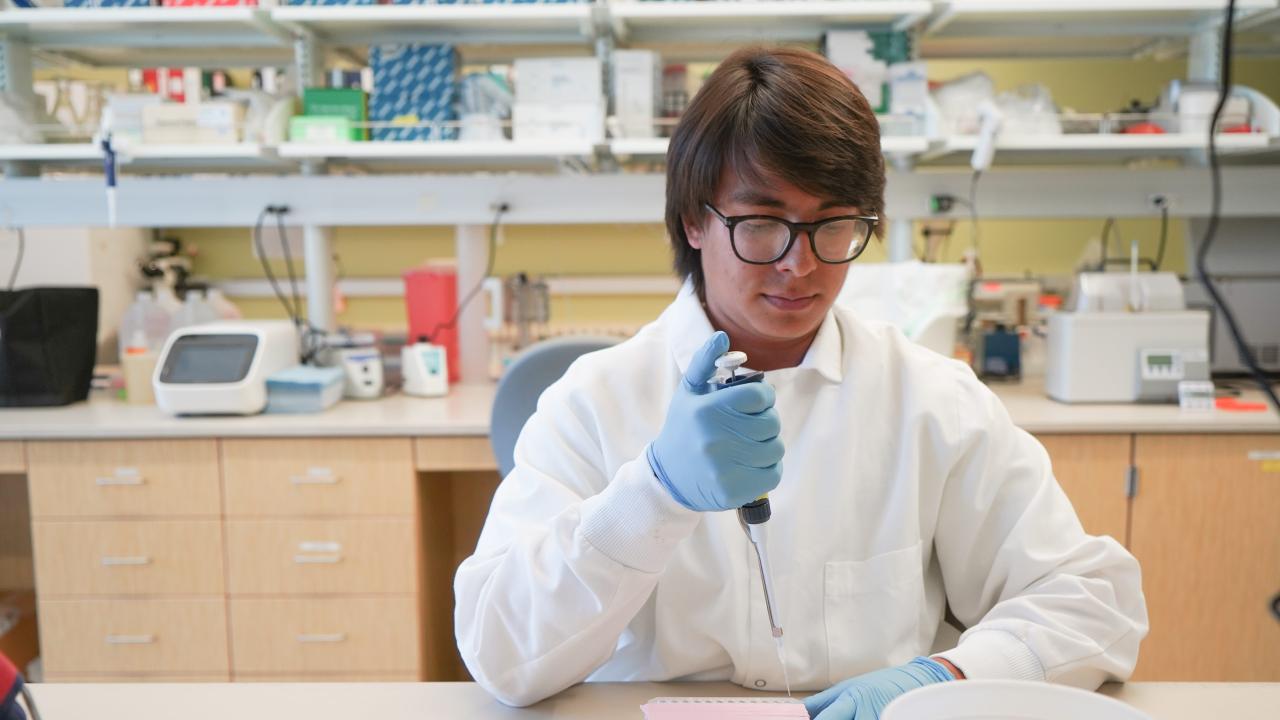
From Costa Rica to California
Ernesto Rojas Sánchez Embarks on a New Chapter in Epidemiology
When Dr. Ernesto Rojas Sánchez first heard about UC Davis, he was a third-year veterinary student at the Universidad Nacional de Costa Rica (UNA-CR). That’s when Dr. Pat Conrad, at the time the Associate Dean for Global Programs at the UC Davis School of Veterinary Medicine, visited his university to give a series of talks on infectious diseases in California and the One Health approach. Her presentation, which included research on toxoplasmosis in marine mammals and a roundtable discussion “Imagine what you can do and contribute as a veterinarian”, left a lasting impression. That initial connection would ultimately set Ernesto on a path that led him all the way to Davis.
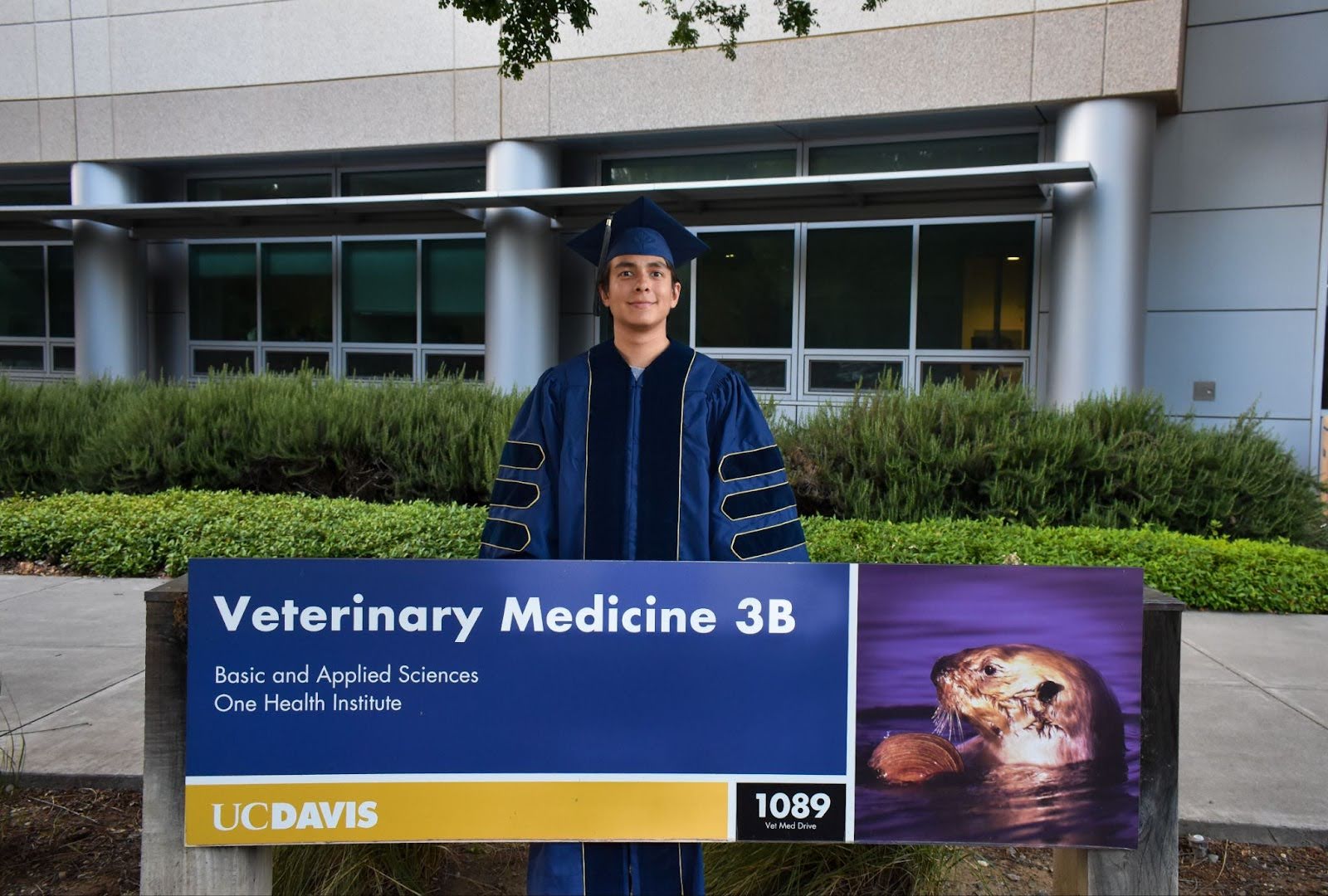
“I knew I wanted to learn more about how a world-leading institution like UC Davis applies the One Health approach to address complex challenges”, Ernesto said. He kept in touch with Dr. Conrad, who recognized his passion and potential and connected him with Dr. Woutrina Smith at the One Health Institute. That introduction proved pivotal. Dr. Smith brought Ernesto into her lab and became a key mentor, guiding his development as a researcher and One Health professional. This connection marked the beginning of his UC Davis journey, and he soon joined the 2022 Rx One Health Field Institute, his first immersive experience with the university. From there, doors began to open.
Building a Foundation in One Health Research
Enrolled in the UC Davis School of Veterinary Medicine’s Master of Preventive Veterinary Medicine (MPVM) program, Ernesto immersed himself in interdisciplinary research and collaborative projects that spanned laboratory work, field research, and global health partnerships. He worked closely with Dr. Smith, who became a mentor across every facet of his experience, from the lab bench to the field to the data set analysis. Other mentors included Andrea Packham and Magdalena Plancarte from the One Health Institute Laboratory, UC Davis professors Drs. Brian Bird, Jane Sykes, Karen Shapiro, Devinn Sinnott, and Jennifer Cassano, along with Drs. Cara Field and Padraig Duginan from The Marine Mammal Center (TMMC),and Dr. Melissa Miller from California Department of Fish and Wildlife.
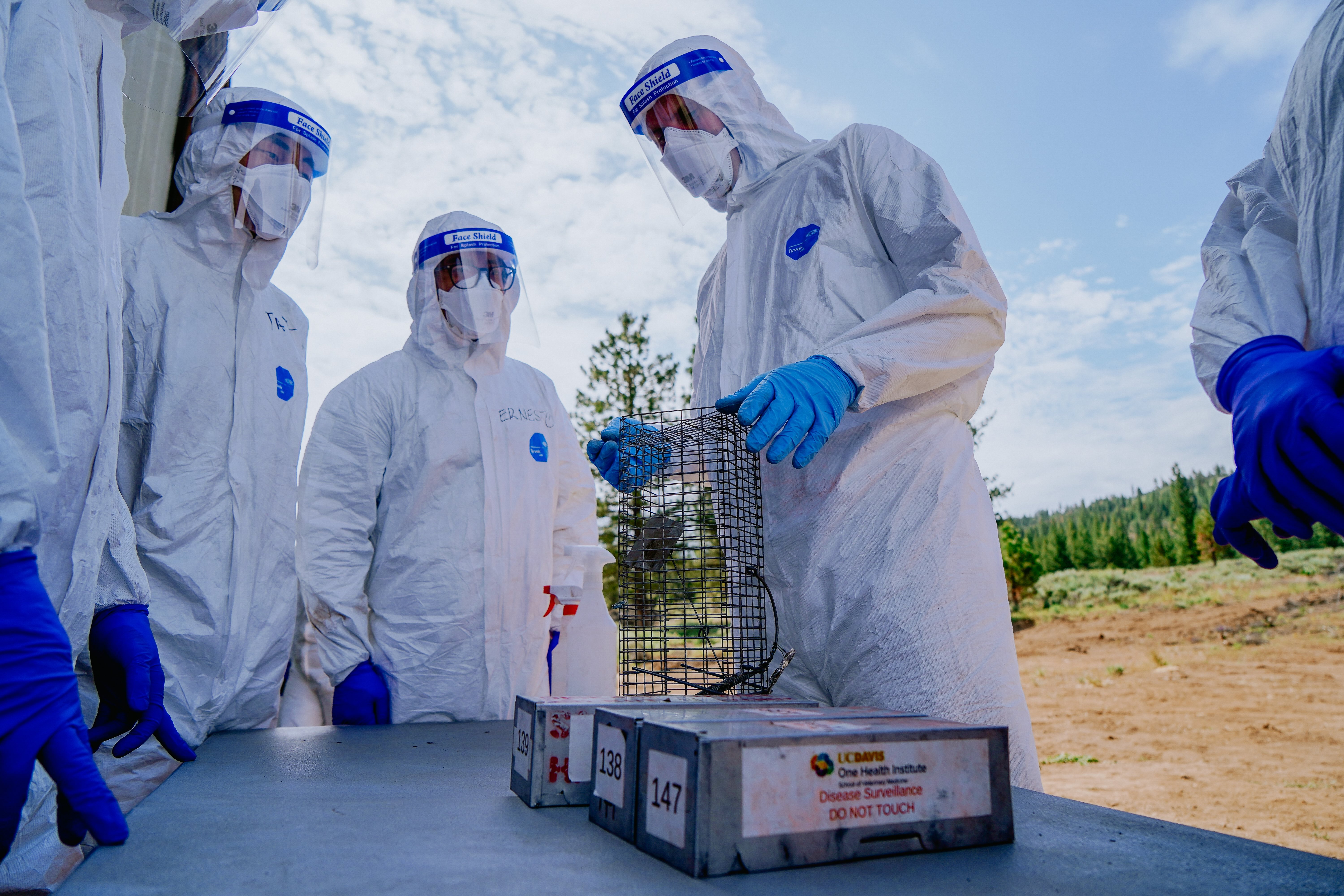
Ernesto also participated in several key programs and initiatives, including the UC Davis Students for One Health Club, the UCD SVM Global Programs Committee, the Clover Valley Water & Wildlife project, and research efforts focused on coccidioidomycosis through both UC Davis Health and the School of Veterinary Medicine.
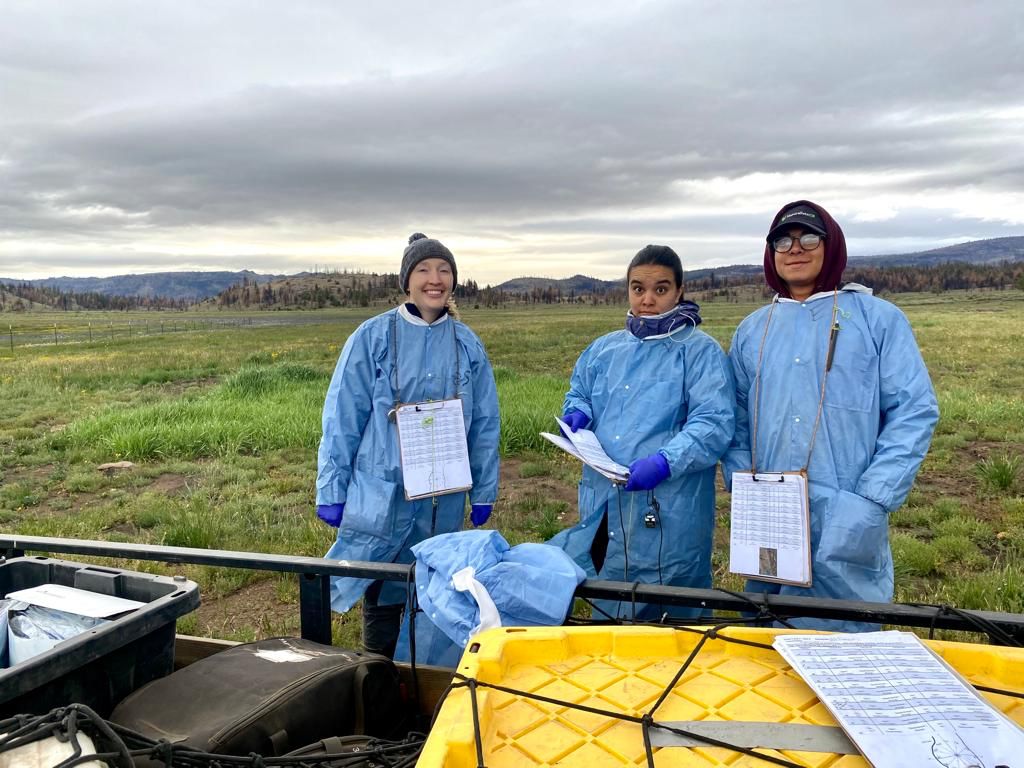
Reflecting on the Last Three Years
A standout memory from his time at UC Davis is a collaborative visit to TMMC. This visit marked the first time where members of a large-scale study around Sarcocystis neurona infection in California sea lions got to be together in-person: “It made everything feel more connected.” As someone who had been processing and testing samples collected by members of the TMMC team, Ernesto appreciated putting the faces to the names of his collaborators.

One of the biggest takeaways from his MPVM experience was the value of organization in research, a lesson he attributes to his time in Dr. Smith’s lab. “The hardworking people around me and the high level of organization at The One Health Institute Laboratory deeply influenced how I approach my work today—whether it’s doing lab work, analyzing data, managing a project, mentoring other students, or any other simple or complex task,” he said.
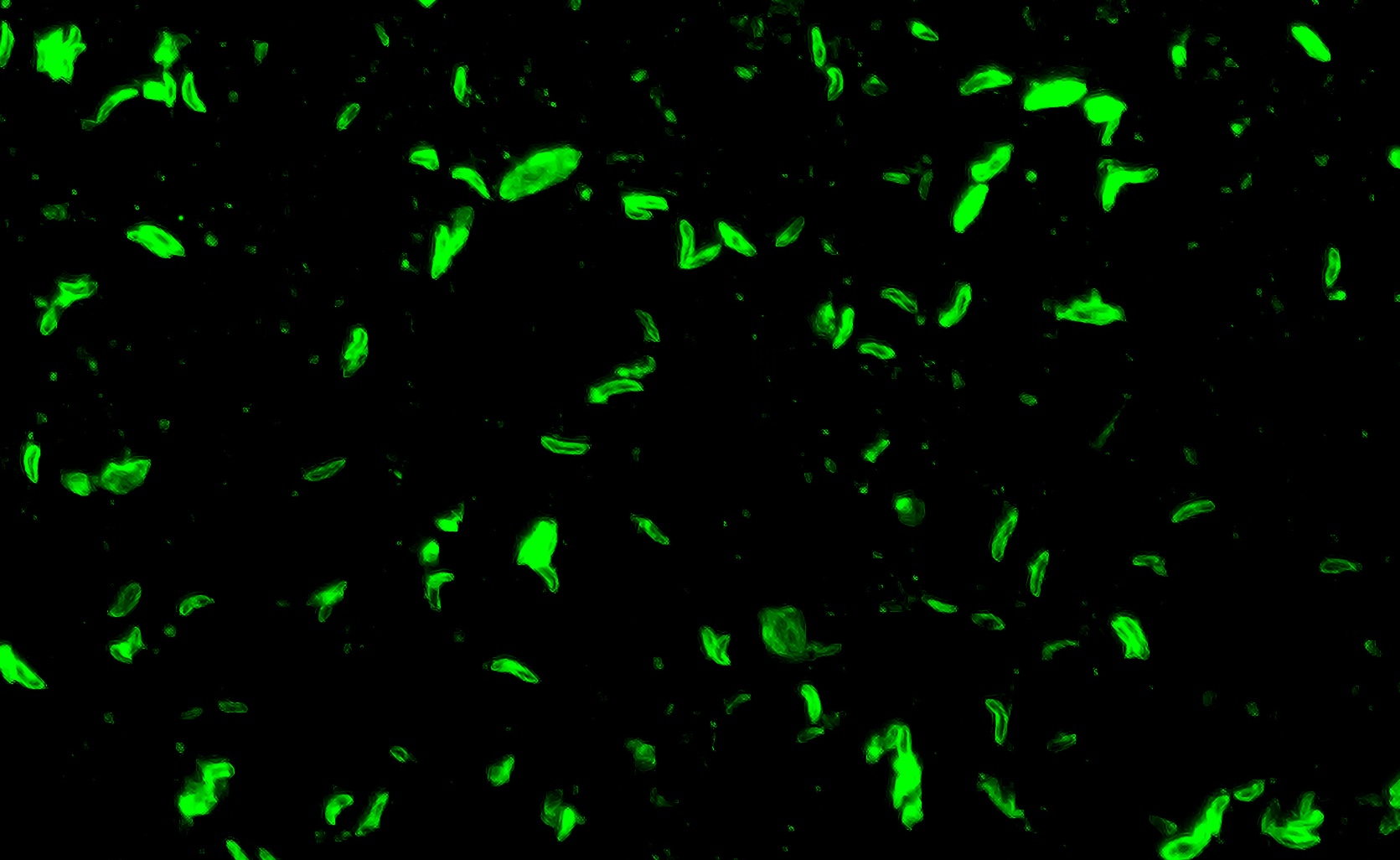
The Journey Continues at UC Davis
Fueled by a genuine passion for research, especially when it has an impact in improving patients' health, helps clinicians as well as public health, Ernesto approaches each day with motivation and curiosity – energy that carried him through the completion of his MPVM degree at UC Davis this year. Last summer he also began his PhD in the Graduate Group of Epidemiology at UC Davis. His primary advisor will be Dr. Jane Sykes, with continued mentorship from Dr. Woutrina Smith and new guidance from Dr. Beatriz Martinez-Lopez. He plans to continue his research on epidemiology of coccidioidomycosis in California, a complex One Health issue at the intersection of human, animal, and environmental health.
